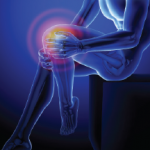When a young patient arrives at a clinic complaining of knee pain with clicking or popping, a meniscal tear is often the culprit. “In young [people], there’s a pretty classic presentation of meniscal tear, with clicking and other mechanical symptoms, because the tear rubs up against different tissues,” says Jeffrey Katz, MD, MSc, a rheumatologist…









